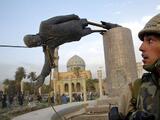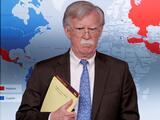What's at Stake in El Salvador’s Elections?

The February 3 elections on Sunday in El Salvador will determine whether country will be able to halt the cause of migration out of what some say is the country with highest murder, internal displacement and emigration rates in the world for a country not a war (though Iraq and Honduras are close rivals). To date the government of El Salvador has barely acknowledged the problem, epitomized by the statistic that only 5% of its murders are solved—compared with 75% in the USA.
The leading candidate in polls, former San Salvador mayor, Nayib Bukele, promises to crack down on corruption. A 37-year-old businessman and night club owner, Bukele represents the Grand National Alliance for Unity along with his running mate Felix Ulloa, a law professor with international experience working for democratization. The pair have outlined a center-left agenda, designed to attract foreign investment and continue the support, estimated by some at $10 billion annually, in remittances that a million overseas Salvadorans send home.
Bukele leads Carlos Calleja of the conservative New Country coalition and Hugo Martinez of the party formed by El Salvador’s former FMLN guerrillas.
El Salvador is still feeling the effects of the civil war that killed about 75,000 civilians in the 1980s, most directly due to organized crime and violence that still plagues the country. Less obvious, but just as important a legacy has been the grip on power of the FMLN and the ARENA parties, who have governed though the five presidencies since the Chapultepec Peace Accords were signed in 1992. These parties were the two main antagonists during the war, the former as Marxist guerrillas forces (FMLN) and the right wing party (ARENA) linked to death squads.
While both reformed themselves in a manner that made parliamentary politics possible, the political space in the center has never been represented in power. A prior attempt was made with the 1984 election of the Christian Democratic Party led by Jose Napoleon Duarte, though his administration was discredited because of corruption allegations, the failure to protect civilian lives, and most importantly its failure to end the war and bring peace to the country. Five years later, under United Nations mediation and a reformed ARENA presidency of Georgetown University educated, Alfredo Cristiani, a peace process allowed the FMLN to convert itself into a political party.
While both the FMLN and ARENA transformed themselves, “the two parties governed along similar lines, regardless of their professed ideologies on the left and right ideological spectrum respectively,” Ulloa declared in a recent speech in Atlanta.
Bukele tried to create his own party, Nuevas Ideas (New Ideas), challenging the traditional politicians but El Salvador’s electoral court failed to approve it in time for him to run. In order to get on the ballot, Bukele adopted the Grand National Alliance for Unity (GANA), a center-right party that lacked a strong following and was itself plagued with scandal. Thanks in large part to Bukele's own social media marketing his campaign took off promoting him as a fresh face with a strong appeal to younger voters.
El Salvador has had epidemics of gang-related violence, with world record levels of homicides, which in turn has produced internal and external migration. Ironically, public discourse ignores the displacement crisis resulting from the government’s inability to protect those who flee for their lives. These migrants are dismissed by many in the United States as "illegals", with President Donald Trump seeking to paint them all as potential MS-13 gang members. What is often forgotten is that beginning in Los Angeles in the 1990s, Salvadoran gang members were deported in significant numbers from the United States and continued as career criminals back in El Salvador. The government has never seriously tried to disarm the gangs, since they are outnumbered. Organized criminals are roughly estimated to number at least 60,000 out of the 6.5 million population, present in 94% of the country’s 262 municipalities.
The maras perpetrate murder, drug dealing, gun sales, prostitution, robbery and human trafficking. An estimated 70% of companies are "taxed" at gunpoint by gangs, costing the economy an estimated $4 billion a year, according its Central Reserve Bank. The displaced include many young males who resist gang recruitment at the risk of their own lives.
In 2015 the murder rate was 103 per 100,000 inhabitants, making El Salvador the most violent country in the world. A shocking 11 people were murdered every day. Local groups put the number of internally displaced in the hundreds of thousands, though the government has sought to downplay this statistic. Many say they fear the government more than the maras with police accused of brutality, corruption and even murder.
The cause of violence in El Salvador, Bukele, and Ulloa emphasize, is the lack of economic opportunities, which is true enough. However, the next government must get control of the career criminals that make economic investment a political risk, not just an economic one. If victorious, Bukele and Ulloa must also acknowledge that the country has a displacement crisis resulting from the failure of the police and elected officials, many of them corrupted by the maras.
Until the violence is halted, El Salvador will continue to produce forced migrants, both internal and those headed for 'el norte'.
(Henry 'Chip' Carey is an Associate Professor of Political Science at Georgia State University.)



